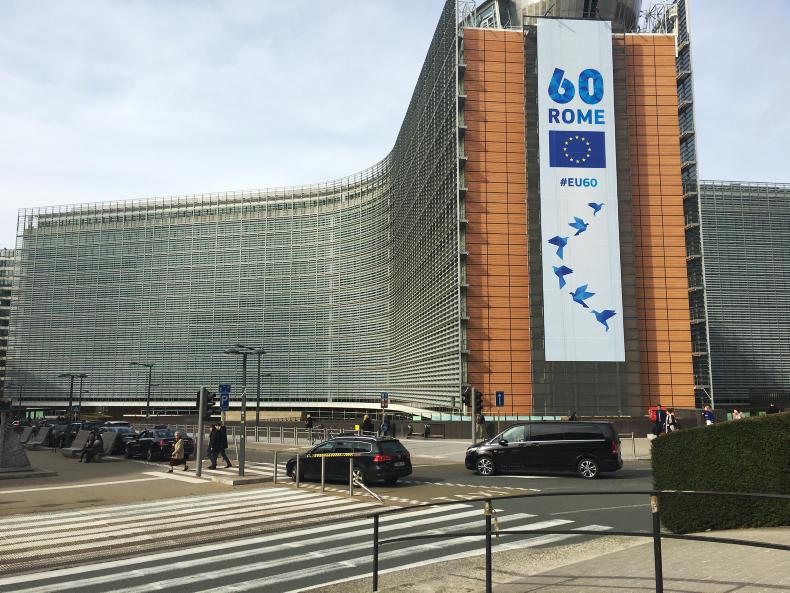The ruling by the EU Court of Justice that the trade deal with Singapore cannot be approved in its entirety without consulting member states suggests that the power of the EU institutions is curbed. It is, but only to a limited extent.
Lisbon
The purpose of the Lisbon Treaty, which was originally rejected by Ireland in a referendum before a second vote approved it, was to centralise decision making on key issues such as trade deals in the EU institutions. This ruling restricts this in two specific areas.
The first is non-direct foreign investment, which are essentially dormant investments without an intention to influence the management and control of an undertaking.
The other area that national and regional institutions, of which there are 38 in the EU, are expressly required to give their approval for are disputes resolution mechanisms between investors and states on issues relating to non-direct foreign investment.
Any negotiation by the EU on international disputes mechanisms will have to obtain approval by EU national and regional parliaments
This is about who has the final say in a dispute, namely the courts of a member state country or some international disputes mechanism. The example often referred to is the challenge by US tobacco company Philip Morris on the Australian government ban on branding of cigarette packages, which Philip Morris said was an infringement of its intellectual property.
Any negotiation by the EU on international disputes mechanisms will have to obtain approval by EU national and regional parliaments.
Authority
However, there are many areas where the ruling confirms that the EU has exclusive authority to decide on behalf of members. These include access to the EU market which removes the possibility of a country blocking a trade deal it doesn’t like because of access being granted to the EU market.
Similarly, direct foreign investment and intellectual property rights are adjudicated as being EU-only issues as are provisions designed to combat anti-competitive activity and sustainable development.
Just as this ruling limits the scope of where the EU has complete authority in relation to free trade agreements (FTAs), it also confirms the extent of areas where it does have authority. In practice, this limits the scope of Ireland or any other member state to successfully challenge the content of FTAs, particularly in the controversial area of market access.
Read more
Irish farmers will need to take risks and embrace trade
The ruling by the EU Court of Justice that the trade deal with Singapore cannot be approved in its entirety without consulting member states suggests that the power of the EU institutions is curbed. It is, but only to a limited extent.
Lisbon
The purpose of the Lisbon Treaty, which was originally rejected by Ireland in a referendum before a second vote approved it, was to centralise decision making on key issues such as trade deals in the EU institutions. This ruling restricts this in two specific areas.
The first is non-direct foreign investment, which are essentially dormant investments without an intention to influence the management and control of an undertaking.
The other area that national and regional institutions, of which there are 38 in the EU, are expressly required to give their approval for are disputes resolution mechanisms between investors and states on issues relating to non-direct foreign investment.
Any negotiation by the EU on international disputes mechanisms will have to obtain approval by EU national and regional parliaments
This is about who has the final say in a dispute, namely the courts of a member state country or some international disputes mechanism. The example often referred to is the challenge by US tobacco company Philip Morris on the Australian government ban on branding of cigarette packages, which Philip Morris said was an infringement of its intellectual property.
Any negotiation by the EU on international disputes mechanisms will have to obtain approval by EU national and regional parliaments.
Authority
However, there are many areas where the ruling confirms that the EU has exclusive authority to decide on behalf of members. These include access to the EU market which removes the possibility of a country blocking a trade deal it doesn’t like because of access being granted to the EU market.
Similarly, direct foreign investment and intellectual property rights are adjudicated as being EU-only issues as are provisions designed to combat anti-competitive activity and sustainable development.
Just as this ruling limits the scope of where the EU has complete authority in relation to free trade agreements (FTAs), it also confirms the extent of areas where it does have authority. In practice, this limits the scope of Ireland or any other member state to successfully challenge the content of FTAs, particularly in the controversial area of market access.
Read more
Irish farmers will need to take risks and embrace trade






 This is a subscriber-only article
This is a subscriber-only article










SHARING OPTIONS: